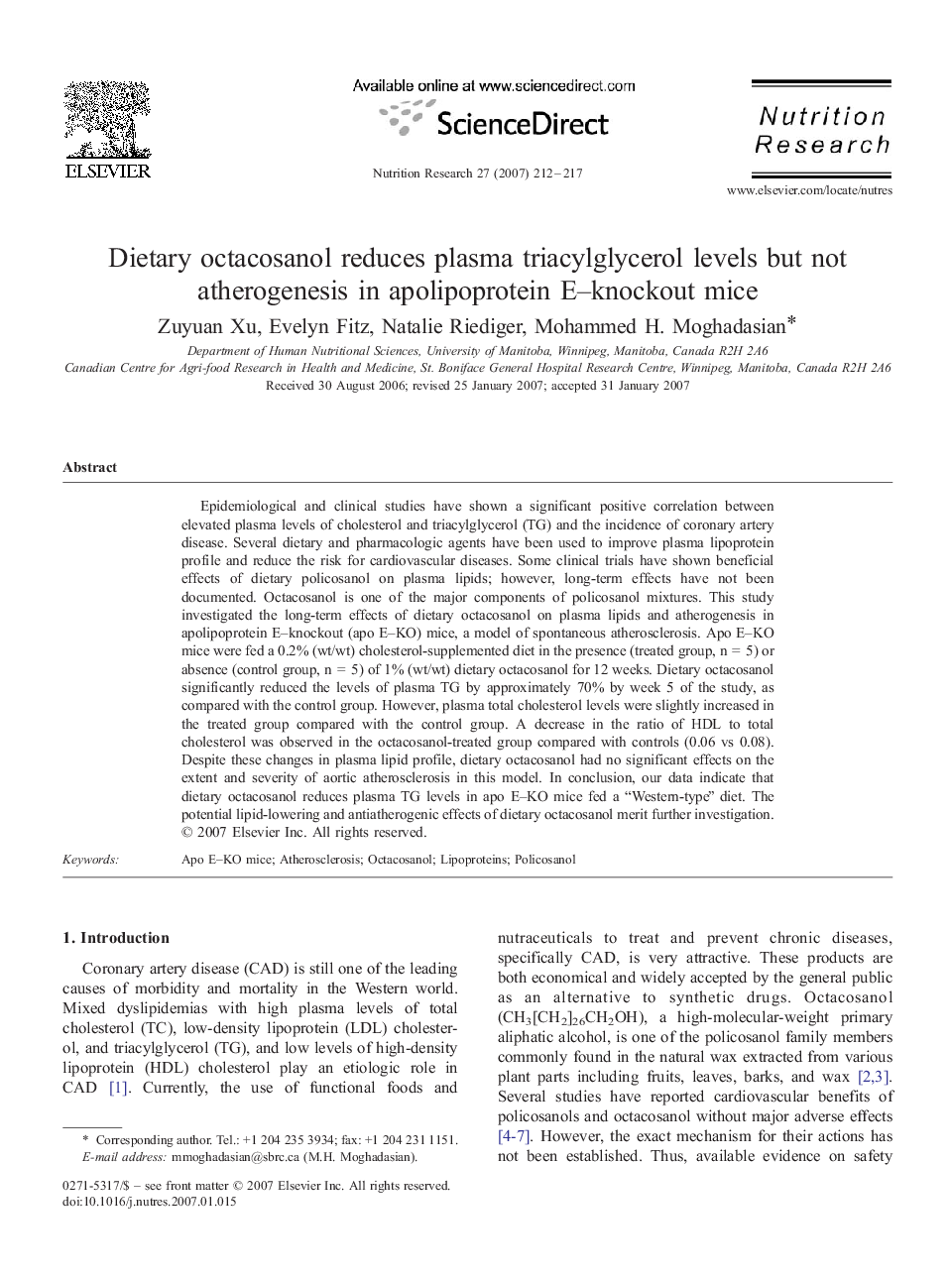| Article ID | Journal | Published Year | Pages | File Type |
|---|---|---|---|---|
| 2809850 | Nutrition Research | 2007 | 6 Pages |
Abstract
Epidemiological and clinical studies have shown a significant positive correlation between elevated plasma levels of cholesterol and triacylglycerol (TG) and the incidence of coronary artery disease. Several dietary and pharmacologic agents have been used to improve plasma lipoprotein profile and reduce the risk for cardiovascular diseases. Some clinical trials have shown beneficial effects of dietary policosanol on plasma lipids; however, long-term effects have not been documented. Octacosanol is one of the major components of policosanol mixtures. This study investigated the long-term effects of dietary octacosanol on plasma lipids and atherogenesis in apolipoprotein E-knockout (apo E-KO) mice, a model of spontaneous atherosclerosis. Apo E-KO mice were fed a 0.2% (wt/wt) cholesterol-supplemented diet in the presence (treated group, n = 5) or absence (control group, n = 5) of 1% (wt/wt) dietary octacosanol for 12 weeks. Dietary octacosanol significantly reduced the levels of plasma TG by approximately 70% by week 5 of the study, as compared with the control group. However, plasma total cholesterol levels were slightly increased in the treated group compared with the control group. A decrease in the ratio of HDL to total cholesterol was observed in the octacosanol-treated group compared with controls (0.06 vs 0.08). Despite these changes in plasma lipid profile, dietary octacosanol had no significant effects on the extent and severity of aortic atherosclerosis in this model. In conclusion, our data indicate that dietary octacosanol reduces plasma TG levels in apo E-KO mice fed a “Western-type” diet. The potential lipid-lowering and antiatherogenic effects of dietary octacosanol merit further investigation.
Related Topics
Life Sciences
Biochemistry, Genetics and Molecular Biology
Endocrinology
Authors
Zuyuan Xu, Evelyn Fitz, Natalie Riediger, Mohammed H. Moghadasian,
